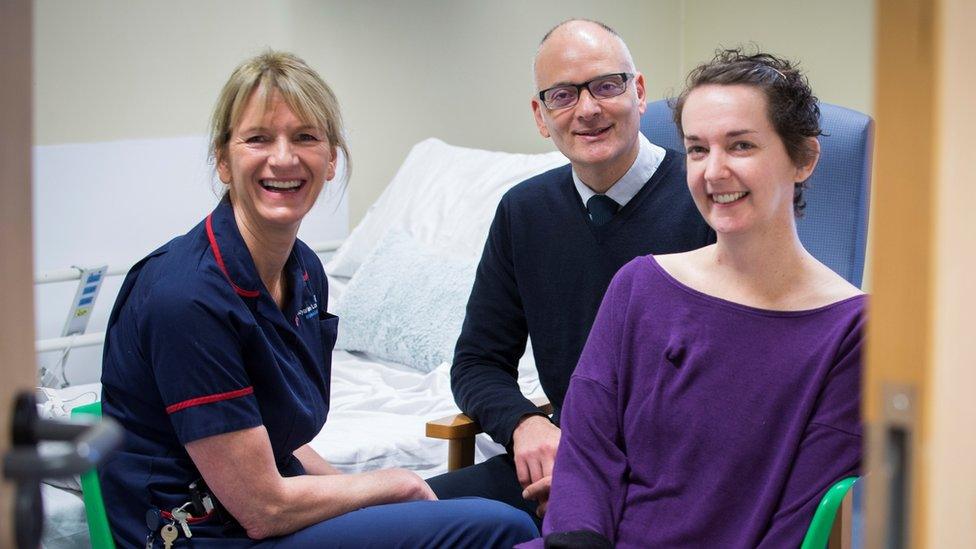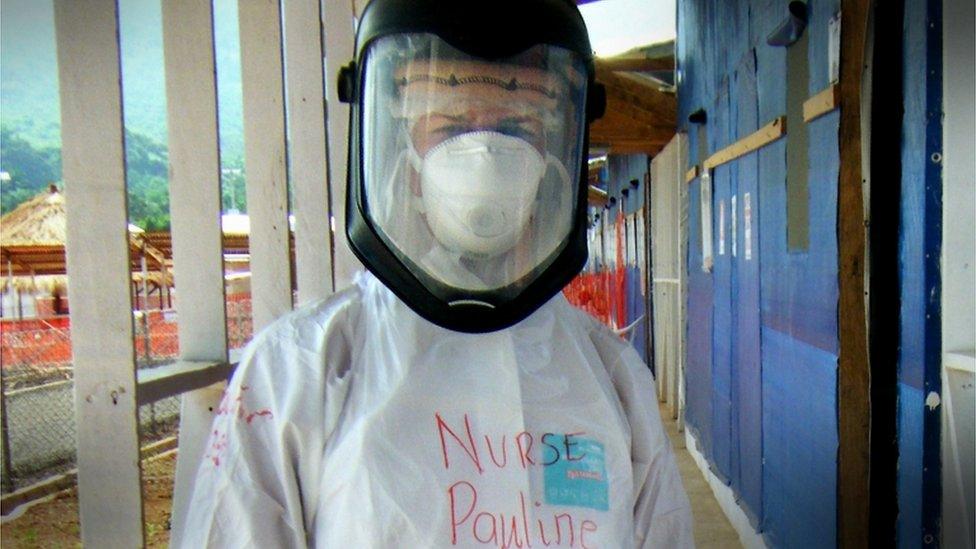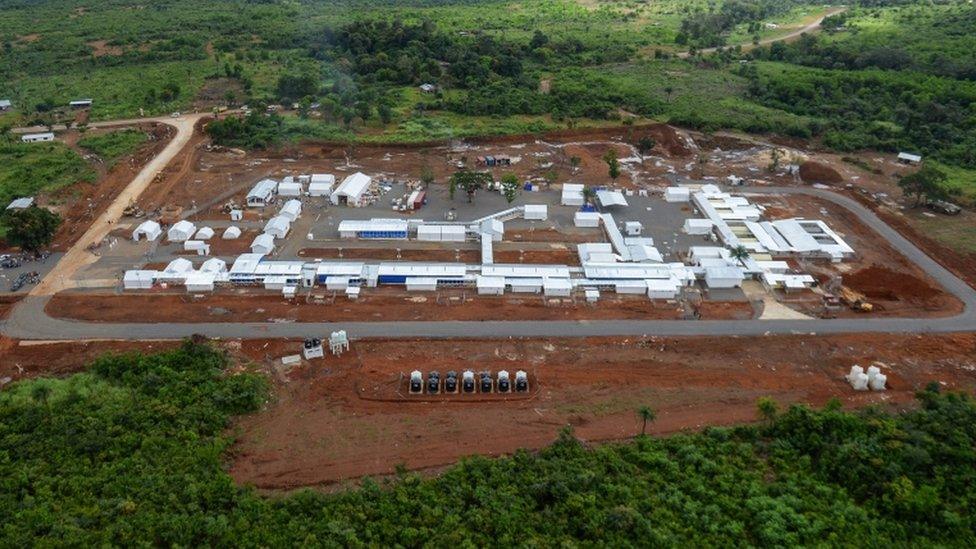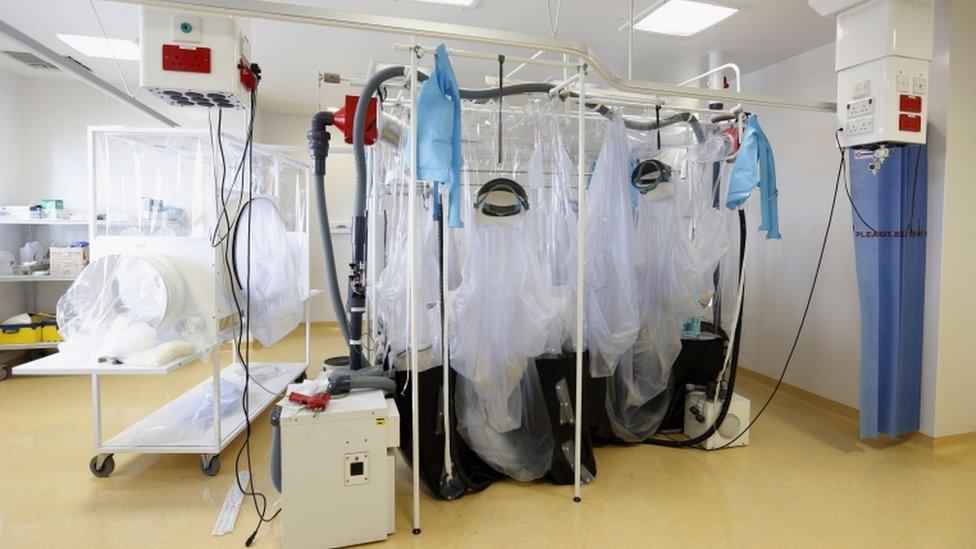Ebola nurse Pauline Cafferkey 'has made full recovery'
- Published

Ms Cafferkey thanked staff at the Royal Free, including senior matron Breda Athan and consultant Dr Michael Jacobs (both pictured), for the care she received
A Scottish nurse who was readmitted to hospital after suffering complications arising from the Ebola infection has made a "full recovery", doctors say.
Pauline Cafferkey initially contracted Ebola while working at a treatment centre in Sierra Leone last year.
She was successfully treated at the Royal Free Hospital in London, but was taken there again in October after the virus caused her to develop meningitis.
The hospital said Ms Cafferkey had now been discharged.
In a statement, it said that the 39-year-old nurse was no longer infectious, was well enough to return to Scotland, and had been transferred to the Queen Elizabeth University Hospital in Glasgow.
A statement from NHS Greater Glasgow and Clyde added: "We can confirm that Pauline Cafferkey was transferred back to the Queen Elizabeth University Hospital to complete her hospital treatment. Her condition is stable.
"All the appropriate arrangements for Pauline's admission to the hospital and continued treatment have been followed."
'Amazing care'
Ms Cafferkey said she was "forever thankful for the amazing care" she had received at the Royal Free, which has a specialist isolation unit for treating highly infectious diseases.
She added: "For a second time staff across many departments of the hospital have worked incredibly hard to help me recover and I will always be grateful to them and the NHS.
"I am looking forward to returning to Scotland and to seeing my family and friends again."

Ms Cafferkey worked as a nurse at an Ebola treatment facility in Sierra Leone at the height of the Ebola outbreak in west Africa

Ms Cafferkey described some of the horrors she faced at the Kerry Town Ebola treatment centre in a diary that was published in a newspaper

Ms Cafferkey was treated at a specialist isolation unit at the Royal Free Hospital
Ms Cafferkey, from Cambuslang in South Lanarkshire, contracted Ebola while working at the Kerry Town Ebola treatment centre in Sierra Leone.
She spent almost a month in isolation at the Royal Free at the beginning of this year after the virus was detected when she arrived back in the UK.
She was later discharged after apparently making a full recovery, and in March returned to work as a public health nurse at Blantyre Health Centre in South Lanarkshire.
But it was discovered in October that Ebola was still present in her body, with health officials later confirming she had been diagnosed with meningitis caused by the virus.
Military aircraft
Bodily tissues can harbour the Ebola infection months after the person appears to have fully recovered.
On 9 October, she was flown from Glasgow to London in a military aircraft to receive treatment in the isolation unit at the Royal Free Hospital.
Her condition later deteriorated, with the hospital saying she had become "critically ill", but she began to improve within a few days.
Doctors said Ms Cafferkey had been treated with "a highly experimental" anti-viral drug in the early stages of development called GS5734, but did not know whether it had been of benefit to her.
The week before she fell ill for a second time, Ms Cafferkey received an award at the Pride of Britain Awards in central London, before meeting the Prime Minister's wife Samantha Cameron the following day at Downing Street, alongside other winners.
The Ebola outbreak in west Africa has killed 11,312 of the 28,457 people infected since December 2013, according to the latest WHO figures.